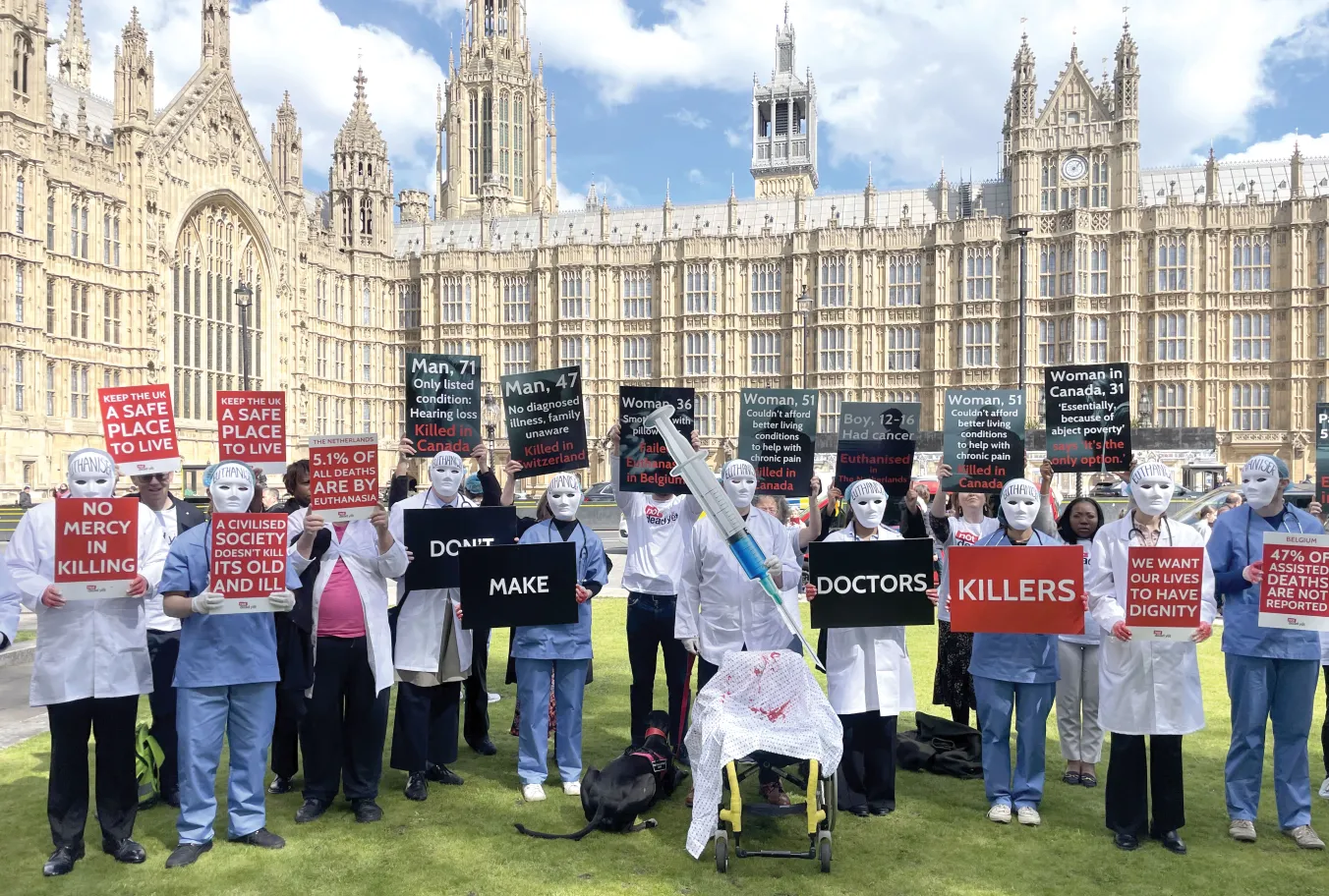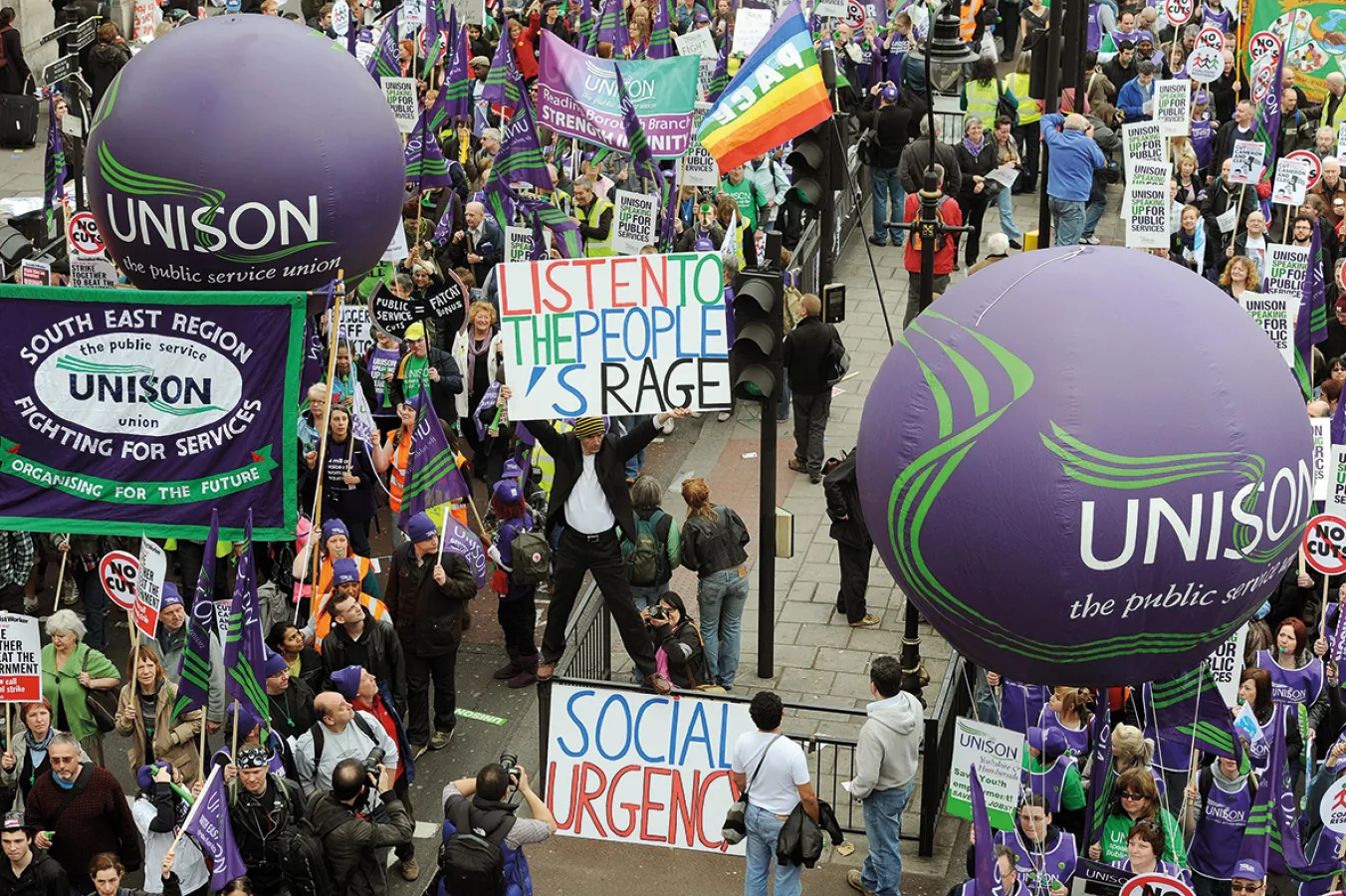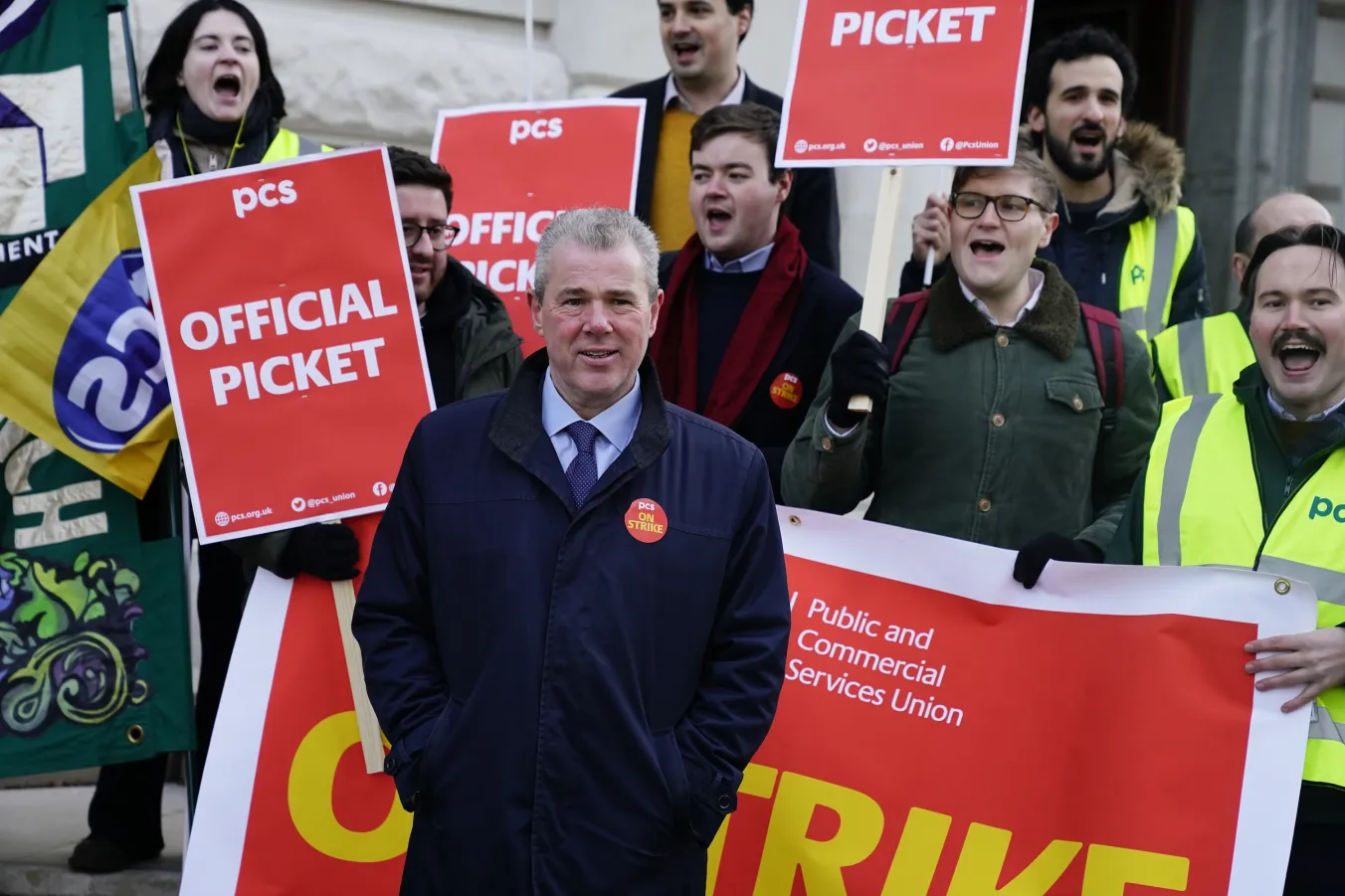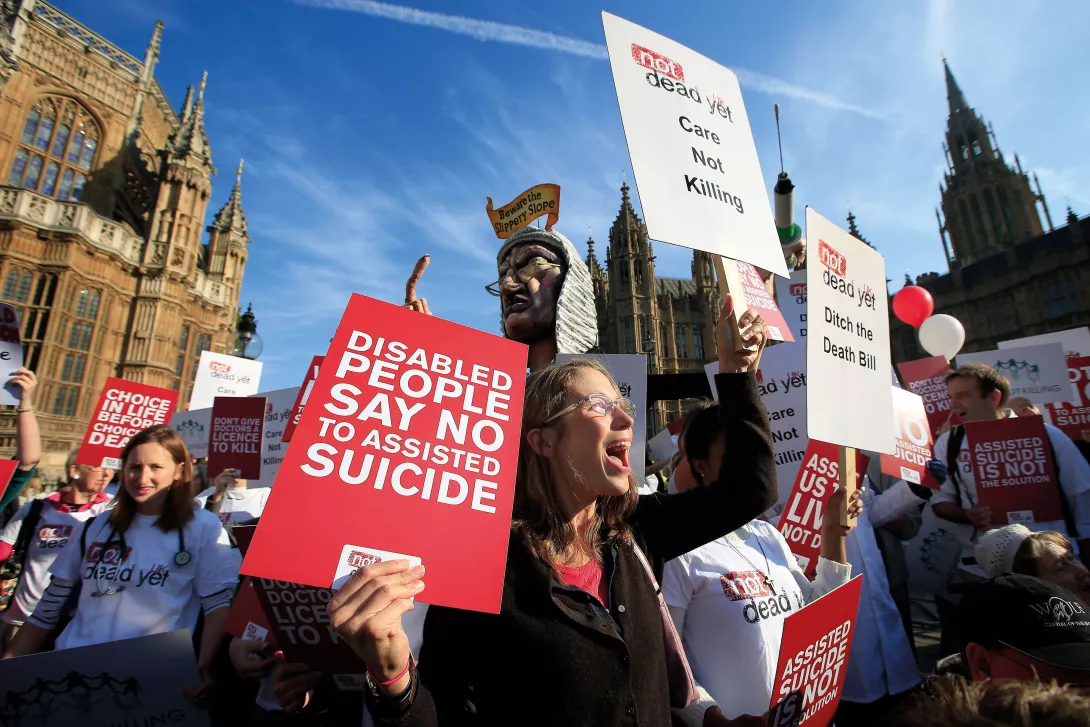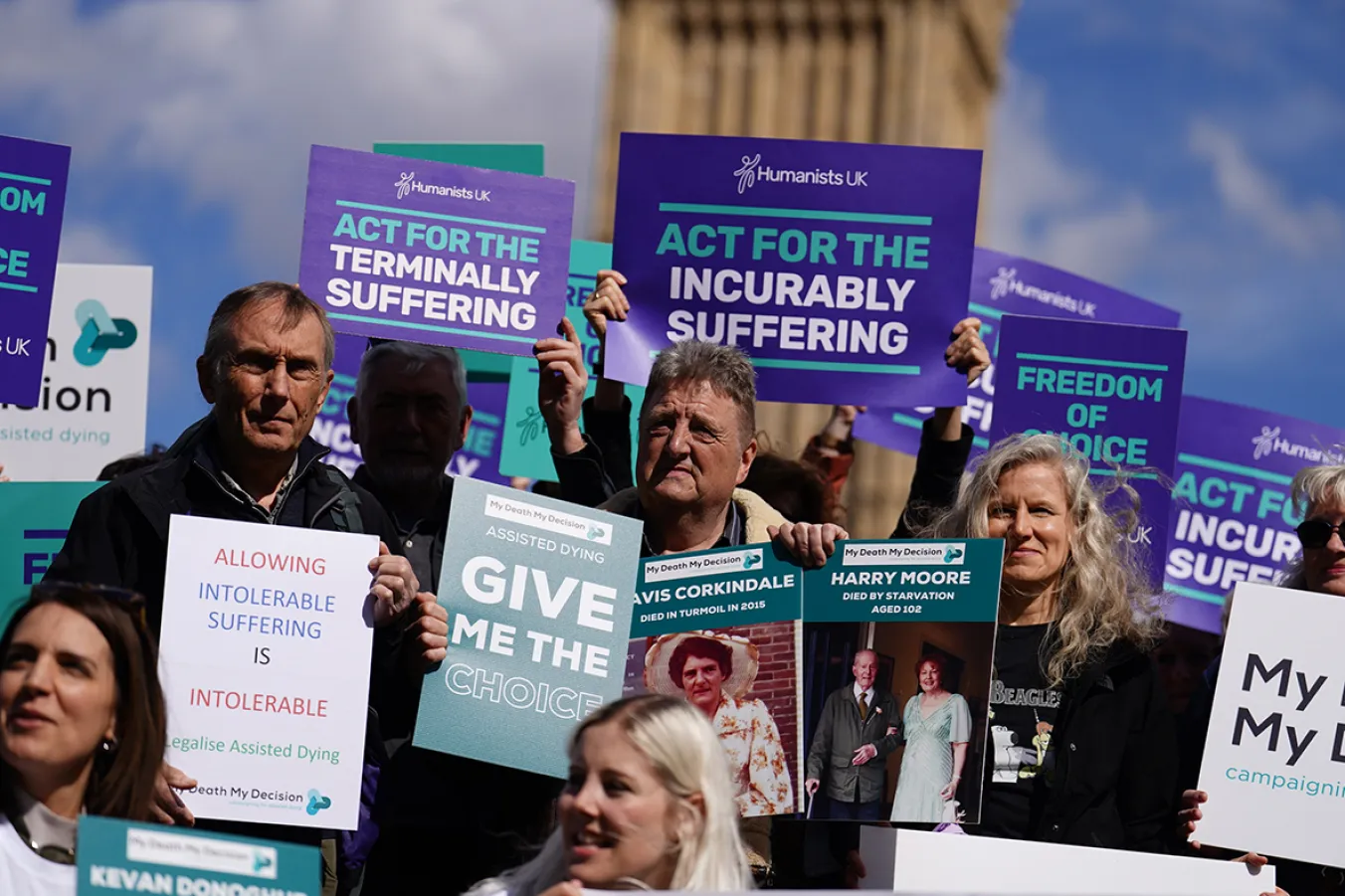
KEIR STARMER’S drive to push assisted dying legislation through Parliament before Christmas on the back of a Private Member’s Bill is a reckless and undemocratic attempt to avoid serious consideration of the issues involved and to avoid rigorous scrutiny of the potentially damaging consequences for both individuals and wider society. It also is an attempt to sidestep any examination of the experience in countries where it operates.
This rush to legalise assisted dying on the basis of support from a so-called “citizen’s jury,” personal supplications from celebrity Esther Rantzen and Starmer himself, raises serious questions of democratic accountability and scrutiny.
The highly contentious assertion from lobby group Dignity in Dying that “the British people are demanding an assisted dying law” is strategically designed to present the issue as one of individual moral and human rights, grounded in unarguable and unchallengeable “progressive” liberal values.
Here lies the danger: any compassionate human being agrees the terminally ill deserve relief from untreatable and irresolvable suffering as they approach death.
But Starmer’s strategy to rush through this major piece of social legislation on emotional appeal, however sincere that may be, is almost designed to obscure, diminish and even dismiss its multiple inherent dangers and wider potentially damaging collective and societal consequences.
In Oregon, the Netherlands and Canada, expectations and assurances that only the terminally ill should have access to assisted dying, and only under the strictest medical assessment and supervision, were quickly abandoned.
While it varies in different places, eligibility benchmarks, with no public debate, democratic accountability or scrutiny, have quickly expanded to include non-terminal conditions like arthritis, complications from falls, hernia, anorexia nervosa, psychological distress, and disability, and then onwards to political, economic and social criteria like homelessness and poverty as valid considerations.
In Oregon, “being a burden” as a consideration for assisted dying rose from 30 per cent at its introduction to around 50 per cent now. Alarmingly, psychiatric referrals fell from 28 per cent to 1 per cent in the same period.
Such evidence shows how quickly, and inevitably, can such a wide expansion in eligibility criteria for assisted dying move far beyond their original humane and sincere motives and intentions to systematic abuse, and create the conditions for the normalisation of what must be bluntly categorised as state-sanctioned social murder.
This legislation will be presented as a humanitarian imperative standing separate and distinct from the prevailing political, economic and social conditions in which it will be applied. But this is just not true.
Poverty causes the type of despair that can make assisted dying appear to be a free, rational choice. But poverty is created by political choice, and precisely by the type of austerity policies that led the Labour government to scrap the winter fuel allowance rather than tax the rich, a decision that will lead to the avoidable deaths of potentially thousands of pensioners this winter.
These and other concerns cry out for a serious process of research and investigation to produce a body of evidence that can, in as much as it is possible, objectively assess both the benefits and dangers of assisted dying legislation.
Any such process must be grounded in participative democratic debate and must include those groups most likely to be negatively impacted if, and inevitably when, the initial assurances only the terminally ill will have access to assisted dying are abandoned.
Successive governments have waged relentless war on the most marginalised sections of society in pursuit of their neoliberal agenda to dismantle the welfare state, and none more so than the disabled. Campaign groups like Disabled People Against Cuts have expressed deep concern over assisted dying, and well they might.
The disabled have been treated by every government since Thatcher’s as if the political establishment regards their very existence as an unnecessary and unwanted drain on resources, and of little value to a society that places profit before people.
The question of assisted dying is a class issue. And one of collective rights, too. It is mainly working-class people who will be pressured into not being a “burden.” It is they who are forced to endure never-ending austerity, which creates the very conditions that will make disposing of people deemed surplus to requirement politically and socially acceptable, even desirable.
Starmer is determined the legislation will be passed and hopes the new batch of Labour MPs are as eager as he is to polish their “progressive” credentials by passing what will be lauded as a major advance in social policy, and without the inconvenience of a real public debate.
Concern has been expressed by Health Minister Wes Streeting and outright opposition from Justice Secretary Shabana Mahmood. But Streeting, like Starmer, is determined to “solve” the crisis in the NHS, set up to fail by decades of severe underfunding, through full privatisation. The marketisation of the NHS will fundamentally and negatively transform how health services are provided and delivered, prioritising “choice” above necessity and profit above need.
In all this, we must hear the clear voice of the trade union movement defending our class interests and of all the working class, including the old, sick, disabled, the unemployed, homeless and the unorganised.
This debate must be placed firmly on the ground of working-class interests and throw a spotlight onto our movement’s general demands: ending cuts and privatisation, provision of adequate staffing and financial resources, as well as arguing for the best possible standards of care, including properly funding research to alleviate all manner of human suffering, including at end of life.
Very few in society oppose assisted dying for the terminally ill. But that is not the real issue here. The ridiculously short time for “debate” rules out any serious consideration could possibly be given to key issues like safeguarding, qualification criteria, and expansion of assisted dying criteria beyond the terminally ill.
Given these and no doubt other considerations, the wider labour and trade union movement, and most certainly the left, must oppose this Bill, and should do so loud and clear as a real danger to working-class interests.
You can follow John McInally X @johnmcinally13.

